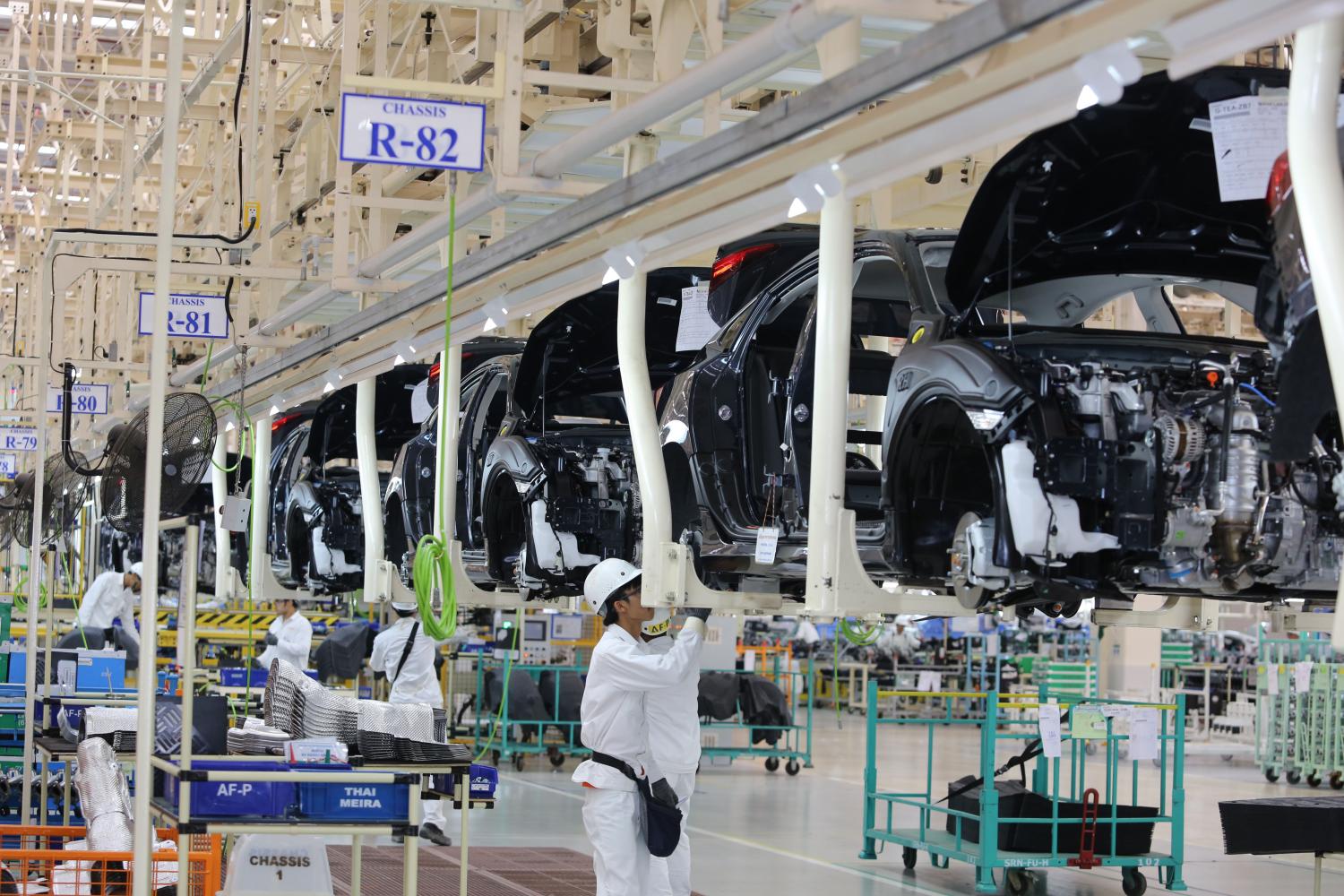
Honda Automobile (Thailand) is considering building an electric vehicle (EV) battery factory in Thailand to serve the country's fledging EV industry.
The company is conducting a feasibility study into the idea, which would reduce battery imports from Japan, but it declined to elaborate.
The use of imported batteries to assemble cars in Thailand leads to higher production costs.
Noriyuki Takakura, president and chief executive of Honda Automobile (Thailand), said the company is committed to developing new technologies that are kinder to the environment as it joins global efforts to reduce carbon dioxide emissions.
"We are aware the global car market is moving towards EVs, so we will continue to invest in technologies in order to catch the trend," he said.
His parent company, Honda Motor Co, aims to increase the proportion of EVs and fuel cell vehicles to 100% of its car sales by 2040.
In Thailand, Honda will focus on hybrid electric vehicles (HEVs) and battery electric vehicles (BEVs). However, demand for BEVs will take time to grow.
"Honda will increase the number of HEVs to become a market leader," said Mr Takakura.
In 2021, he expects Honda car sales in Thailand to stand at 85,000 units.
Total domestic car sales should reach 750,000 units, he added.
"A semiconductor shortage and Covid-19 outbreaks are factors that will affect the automotive industry in Thailand and overseas," said Mr Takakura.
His company on Friday announced the official prices of its all-new Honda HR-V e:HEV in three variants, which range in price between 979,000 baht and 1.1 million baht.
Honda aims to sell up to 20,000 units of this model in the sport utility vehicle (SUV) market during the first year.
Its SUV and Comfortable Runaround Vehicle market share is around 15% in Thailand.
The new car model is expected to increase that share to 30%.







